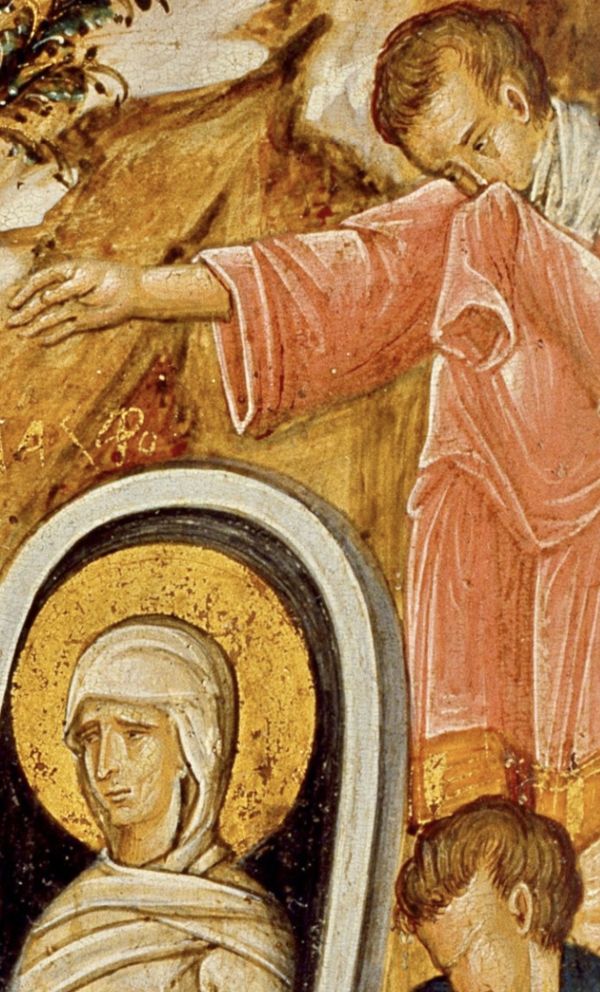The Lord of Life (or the pale sign)
Jn 11:19-27 (1-45)
The event of death is disconcerting, and that of a friend of God in community [Bethany] perhaps accentuates the questions about the meaning of our belief and commit ourselves thoroughly.
Why in the time of greatest need does the Lord let us fall? Why does He seem not to be there (v.21)?
Letting even His dearest friends die, Jesus educates us: it’s not His intention to procrastinate biological existence (vv.14-15), nor simply improve it a little.
“Eternal” [in the Gospels, the very Life of the Eternal: Zoè aiònios] is not this form of life [in the Gospels: Bìos - possibly strengthened] but only its times of strong love.
Ultimate World does not interfere with the natural course.
For this reason the Lord doesn’t enter the “village” where others went to console and give condolences.
He wants Mary to leave the house where everyone cries in despair and mourns funeral - as if everything was over.
He intends to get us out of the “small hamlet” where it’s believed that the earthly end can be only delayed, until the tomb without a future.
The natural emotion for detachment does not hold back tears, which spontaneously «flow from the eyes, sliding down» [dakryein-edakrysen].
Intimate upheaval does not produce a broken and screamed cry [klaiein] as the inconsolable one of the Jews (vv.33.35).
No farewell. For this reason, it follows the order to remove the stone that at that time closed the tombs (v.39).
The strong Call is absolutely imperative: the ‘deceased’ ones are not ‘dead’ ones, as ancient religions believed; their lives goes on.
«Lazarus, out here!» (v.43): it’s the cry of the victory of life.
In the adventure of Faith in Christ we discover that life has no stones on it. Enough, mourning the deadly situations, and the "dead ones"!
The Appeal that the Lord makes is that there is no disappeared souls’ world, separated from us; stand-alone, devoid of communication with the actual one.
Archaic beliefs imagined Hades or Sheôl as a dark, fog-soaked cavern, populated here and there by insubstantial wandering larvae.
On the contrary, the world of the living ones is not separated from that of the ‘deceased’ ones.
«Lazarus is asleep» (v.11), that is: he is not a fallen, because men do not die. They pass from the creaturely life [bìos] to full Life [Zoè].
The ‘deceased’ left this world and entered the world of God, re-Born and begotten to his authentic, complete and definitive being.
Then: «Untie him and let him go!».
In short, Lazarus did not simply end up in the pit, nor, having been well put back on his feet by Christ, did he reappear in this form of life for another stretch... inexorably marked by the limit.
In the Gospel passage, in fact, while everyone goes to Jesus, Lazarus doesn’t.
It’s not this not what Jesus can do in the face of death. He doesn’t immortalize this condition, otherwise all existence would continue to be a useless escape from the decisive appointment.
And it is time to stop crying our loved ones: «deceased», not ‘dead’.
We must not hold them back with obsessive visits, tormented memories, talismans, condolences: let them exist happily in their new condition!
Life for us and Life for those who have already flourished in the world of God's Peace - where we will live fully: with each other and for each other.
[St Martha, Mary and Lazarus, July 29]












